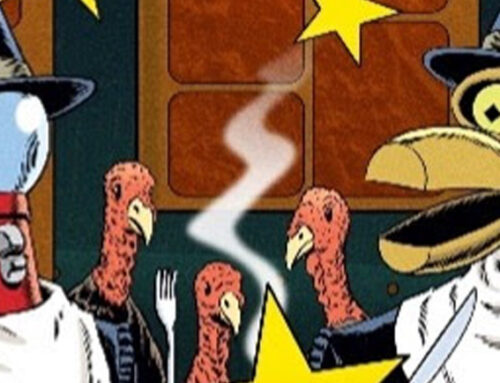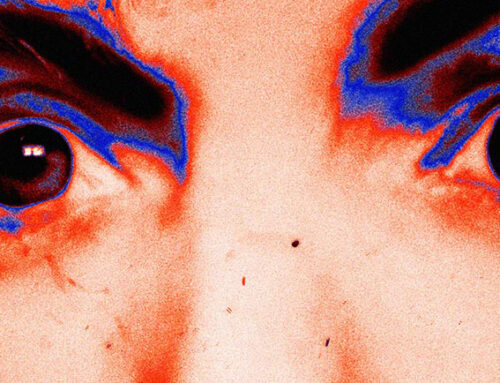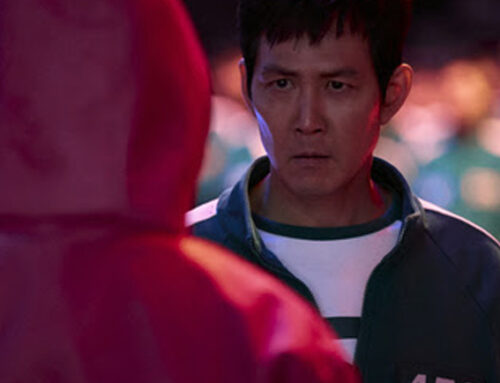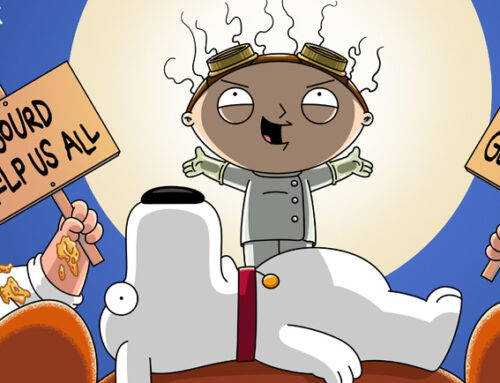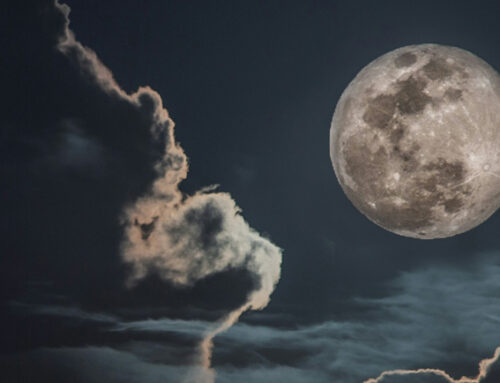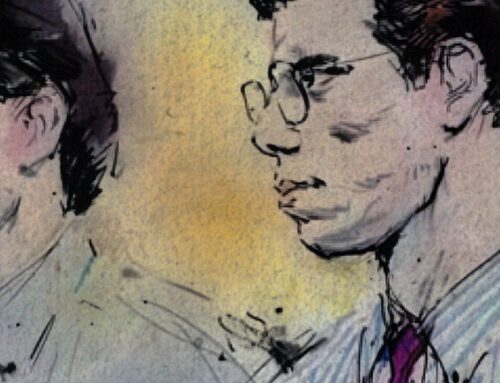Director Mary Harron isn’t afraid of causing a stir. Hitting the scene with her first feature I SHOT ANDY WARHOL, Harron cast a then-unknown Lili Taylor as radical American Feminist Valerie Solanas. In the film, Solanas would attempt to murder Warhol after he rejects one of her screenplays. With critical praise for the film, Harron would pick up work with episodes of HOMICIDE: Life On The Streets and OZ before going on to direct the acerbic satire AMERICAN PSYCHO.
Today, the trailblazing female filmmaker forges ahead with the new limited series THE EXPECTING on streaming service QUIBI. Starring AnnaSophia Robb as a down-on-her-luck waitress who suffers disturbing effects from a mysterious pregnancy. We got a chance to look at the first three episodes that each have a runtime of about 8 minutes each and we liked what we saw. Shades of Cronenberg are apparent as the waitress becomes a slave to her morphing body while uncovering the mystery behind what she is carrying inside of her.
We had the chance to speak with Harron by phone about the new series which is available today on Quibi. We cover her influences and get her advice for up and coming female filmmakers.
 HorrorBuzz: Well, first, what, what drew you to this project?
HorrorBuzz: Well, first, what, what drew you to this project?
Mary Harron: Um, well, I was very interested in a sort of current visual kind of horror, movies that explored what happens to a woman during pregnancy? You know, I’m a big fan of David Cronenberg. You know, The Brood, the way it takes it physical changes that happened during the event. And that event turns into something kind of nightmarish, I thought was rare to get. I know that this might be the way it took a young girl’s experience very much from her point of view. I’m also a big fan out of Rosemary’s Baby. And obviously a little bit of, you know, the idea of what’s happening, what’s real. So it could hit a lot of buttons for me.
HB: Yeah, it was, I was thinking Cronenberg. And that first scene in the shower, and I was like, oh, man. You know, and what I found fascinating is that the writer, creator Ben Ketai is male.Do you think that it gave him any sort of an advantage or disadvantage, a new insight in the experience of somebody going through those changes in their body?
MH: I think that he was very steady towards the female point of view. Why? Because he is somebody clearly that was very involved in, you know, in the birth of his children. When you see him looking afterhis children, and yeah, it to me, it was like, it could have been written by women. It’s very, very sympathetic to the female experience. But I started to get to understand kind of her head. He was very good at, you know, plot twists and turning the tables on you and everything.
HB: Yeah, it definitely kept you guessing. And with the way that the Quibi format is, it just kind of kept propelling you. Because this is such a new thing, that Quibi platform, were there particular challenges, or advantages that you faced when you were telling this type of incremental story.
MH: I mean, it had a sort of cliffhanger at the end of every episode. And sometimes when you’re editing, you change the length of an episode to suddenly have to create a new cliffhanger out of what you have. What you’re trying to do is create something that works for the whole narrative. Like I hope that if you sum them all together will still work as a single story. But your book chapters in a book really, in a good mystery, where each one is kind of propelling you. That was kind of fun, and it’s just sort of traffic. It was a fun challenge.
HB: Did that help you to advance the story in any way? I mean, obviously, it was scripted, but did it create a clip to it, or was it something you thought?
MH: You have to bear in mind, we would remind ourselves, now we’re going to be, you know, end of the chapter. So make sure you have a moment. The material to do that. You have to be a little bit more on your toes to remember, you know, here, you know, got to get it to get the moment. But I think that one of the things about the script that was great was it continued creating tension and surprises. So I think that made our lives easier. There was a lot of that was built into it.
HB: With Quibi, viewers are encouraged to watch on their phones. This means that people can hold their phones horizontal for a traditional aspect ration or the can hold it vertical for a different, vertical view of the show. Did that help or harm the project?
MH: It was hard, you just check what we have. The monitor, you have sort of a large image in your monitor, and we have horizontal and vertical grids. So on any shot, you can see what the horizontal and vertical image was. Pretty much we always shot them at the same time. So it’s, again, a little bit more where it wasn’t I think we shot it pretty quickly. It was like,
HB: How long was the whole shoot?
MH: I think it was maybe 26 days, it wasn’t that much, maybe a little less. On my last movie, I had 40 days. On this one had visual effects. And anytime you have visual effects, anything like that, again, it just is more time-consuming. You know?
HB: You say you’re influenced by THE BROOD, and you love Cronenberg. So do we get any hints of that in the future episodes?
MH: I just thought about it, you know, which is kind of body horror incidents very real, and it’s very dreamlike, you know, it’s like real life but in a kind of nice. That’s very true. And so, I just love the way it took a real life situation. I mean, any woman has had to try all the strange things of pregnancy the strange things that happened to her body, which
HB: There are some universal fears that you are addressing here. And in regards to gender it kind of segues nicely. From that, that question. There was a lot of giving up of, you know, one’s body and being out of control. Were there any universal fears in regards to gender or anything like that, that you were exploring in these episodes or the future episodes?
MH: When she goes to the doctor’s office being examined, there is some definitive helplessness. When you’re in the doctor’s, no medical exam, they would give way too much. But they certainly like the issues of women and their bodies, at what charge of their bodies.
HB: What’s your advice to pioneering female filmmakers, who have a strong voice and have something to say? What is your advice to them?
MH: I think that’s the most important thing to say is don’t compromise too much. Know that what you have to say is what makes you interesting. Just try and match the budget to that. Be prepared for a lot of rejections.
HB: Excellent. Well, again, I thank you for your time and thank you for the work you’ve done. And good luck with this project.

